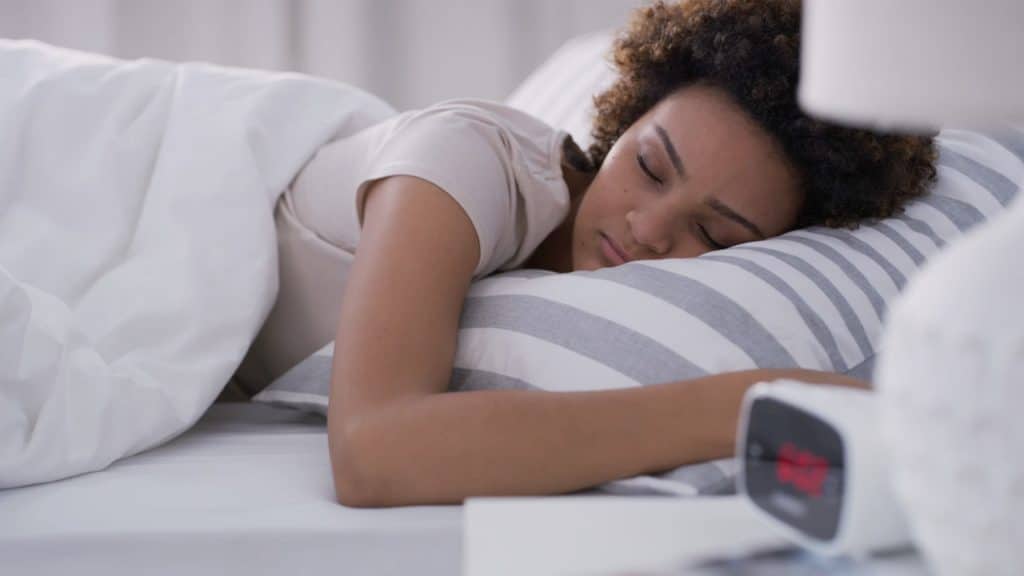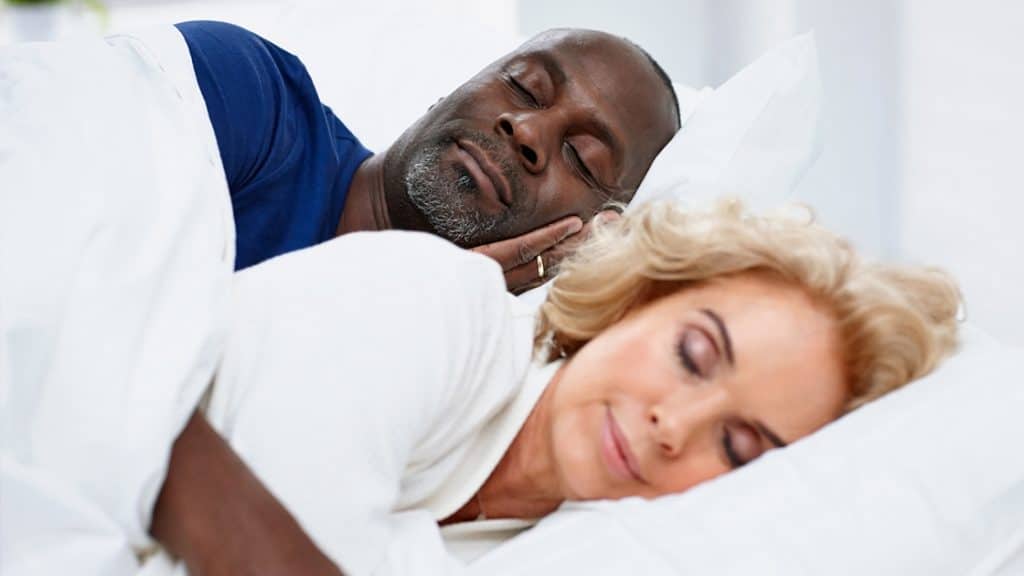
Why You Shouldn’t Ignore Your Sleep Problems: A Guide to Find Sleep Disorder Center
Sleep is essential for health, yet millions struggle with poor sleep quality or undiagnosed sleep disorders, affecting 70 million Americans. Sleep problems not only cause daily fatigue but also increase the risk of serious health issues like diabetes, heart disease, and depression, while impacting focus and relationships. This guide will help you identify sleep disorder warning signs, understand their consequences, and find the right sleep disorder center to improve your sleep and overall well-being.
Identifying Sleep Problems: Beyond Just Feeling Tired
Sleep problems go beyond insomnia and include symptoms like snoring, gasping, excessive daytime sleepiness, morning headaches, dry mouth, trouble concentrating, and unusual sleep behaviors like sleepwalking. Mood changes, such as irritability or anxiety, can also stem from sleep disorders, and partners may notice issues like snoring or pauses in breathing. Keeping a two-week sleep diary with details about bedtime, wake time, and symptoms can help when consulting a specialist.

Types of Sleep Disorders: Understanding What Keeps You Up
Sleep disorders encompass a wide range of conditions, each with distinct characteristics and treatment approaches. Understanding these differences helps you identify which might be affecting your rest.
Insomnia
Insomnia, the most common sleep disorder, involves difficulty falling asleep, staying asleep, or waking too early. Acute insomnia lasts days or weeks and often relates to stress or life changes. Chronic insomnia occurs at least three nights per week for three months or longer. It can stem from medical conditions, medications, or poor sleep habits.
Sleep Apnea
Sleep apnea causes repeated breathing interruptions during sleep. Obstructive sleep apnea occurs when throat muscles relax and block the airway. Central sleep apnea happens when the brain fails to send proper signals to breathing muscles. Both types fragment sleep and reduce oxygen levels, leading to serious health complications if untreated.
Restless Legs Syndrome
Restless legs syndrome creates uncomfortable sensations in the legs, typically in the evening or at bedtime. The overwhelming urge to move the legs can make falling asleep extremely difficult. Symptoms often worsen with rest and improve with movement.
Narcolepsy
Narcolepsy involves excessive daytime sleepiness and sudden sleep attacks. People with narcolepsy may experience cataplexy—sudden muscle weakness triggered by emotions. Sleep paralysis and vivid hallucinations when falling asleep or waking up are also common.
Parasomnias
Parasomnias include abnormal behaviors during sleep such as sleepwalking, night terrors, and REM sleep behavior disorder. While some parasomnias are harmless, others can pose safety risks or indicate underlying neurological conditions.
Consequences of Ignoring Sleep Problems: The Hidden Health Crisis
Dismissing sleep problems as minor inconveniences can have devastating long-term consequences. Sleep disorders create a cascade of health issues that extend far beyond fatigue.
Cardiovascular Risks
Untreated sleep apnea significantly increases the risk of high blood pressure, heart attack, and stroke. The repeated drops in oxygen levels stress the cardiovascular system, while fragmented sleep triggers inflammatory responses that damage blood vessels.
Metabolic Dysfunction
Poor sleep disrupts hormones that regulate hunger and metabolism. Sleep-deprived individuals often experience weight gain, insulin resistance, and increased diabetes risk. The body’s ability to process glucose becomes impaired, leading to elevated blood sugar levels.
Mental Health Impact
Sleep disorders and mental health conditions create a vicious cycle. Depression and anxiety can cause sleep problems, while poor sleep worsens mood disorders. Chronic sleep deprivation affects neurotransmitter production and brain chemistry, increasing the risk of developing mental health conditions.
Cognitive Decline
Sleep plays a crucial role in memory consolidation and brain detoxification. Chronic sleep problems impair concentration, decision-making, and learning ability. Some research suggests untreated sleep disorders may accelerate cognitive decline and increase dementia risk.
Safety Concerns
Drowsy driving causes thousands of accidents annually. Sleep-deprived individuals have reaction times similar to intoxicated drivers. Workplace accidents and injuries also increase significantly among people with untreated sleep disorders.
Finding a Sleep Disorder Center: Your Path to Better Sleep
Choosing the right sleep disorder center is crucial for accurate diagnosis and effective treatment. Several factors should guide your decision-making process.

Accreditation and Credentials
Look for centers accredited by the American Academy of Sleep Medicine (AASM). This ensures the facility meets rigorous standards for equipment, procedures, and staff qualifications. Board-certified sleep medicine physicians should lead the medical team, with registered sleep technologists conducting studies.
Comprehensive Services
The best sleep centers offer a full range of diagnostic and treatment services. This includes overnight sleep studies, home sleep testing, multiple sleep latency tests, and various treatment options. Centers that provide follow-up care and treatment adjustments ensure better long-term outcomes.
Technology and Facilities
Modern sleep centers use advanced diagnostic equipment and comfortable, hotel-like rooms for overnight studies. The facility should feel welcoming rather than clinical, as comfort affects sleep study accuracy.
Sleep Better Solution: A Comprehensive Approach
Sleep Better Solution exemplifies what to look for in a quality sleep disorder center. Their comprehensive services include diagnostic sleep studies, home sleep testing, and a full range of treatment options from CPAP therapy to surgical interventions. The center’s board-certified sleep specialists work closely with patients to develop personalized treatment plans.
What sets Sleep Better Solution apart is their commitment to patient education and ongoing support. They provide detailed explanations of test results, comprehensive treatment options, and continuous follow-up care to ensure treatment effectiveness. Their modern facilities feature comfortable, private rooms designed to promote natural sleep during studies.
The center also offers convenient scheduling options and works with most insurance plans, making quality sleep care accessible to more patients. Their multidisciplinary approach includes collaboration with other specialists when needed, ensuring comprehensive care for complex cases.
What to Expect During a Sleep Study: Demystifying the Process
Sleep studies might seem intimidating, but understanding the process helps reduce anxiety and ensures better results. Most studies are painless and designed to be as comfortable as possible.
Preparation
Before your study, you’ll receive detailed instructions about medications, caffeine, and activities to avoid. Arrive at the sleep center in the evening, bringing comfortable sleepwear and personal items to help you feel at home.
Setup Process
Sleep technologists will attach sensors to monitor various body functions during sleep. These typically include electrodes on your scalp to measure brain waves, sensors around your eyes to track eye movements, and bands around your chest and abdomen to monitor breathing.
During the Study
You’ll sleep in a private room designed to feel comfortable and hotel-like. Technologists monitor you throughout the night from a separate room, ensuring safety while allowing natural sleep. Most people sleep reasonably well despite initial concerns about the equipment.
Morning Routine
You’ll typically wake up around 6 AM, and technologists will remove all sensors. Many people feel surprisingly rested, especially if sleep apnea was interrupting their sleep at home.
Results and Follow-up
A sleep medicine physician will interpret your study results and discuss findings during a follow-up appointment. This consultation covers diagnosis, treatment options, and next steps for improving your sleep.
Treatment Options: Customized Solutions for Better Sleep
Sleep disorder treatments vary widely depending on the specific condition and individual circumstances. Modern sleep medicine offers numerous effective options.
CPAP Therapy
Continuous Positive Airway Pressure (CPAP) remains the gold standard for sleep apnea treatment. Modern CPAP machines are quieter, smaller, and more comfortable than earlier models. Alternative pressure delivery systems like BiPAP or auto-adjusting CPAP may work better for some patients.
Oral Appliances
Custom-fitted oral appliances can effectively treat mild to moderate sleep apnea and snoring. These devices reposition the jaw or tongue to maintain open airways during sleep. They’re particularly popular among patients who cannot tolerate CPAP therapy.
Surgical Options
Various surgical procedures can address specific causes of sleep disorders. Procedures range from minimally invasive treatments for snoring to more comprehensive surgeries for severe sleep apnea. Surgery is typically considered when other treatments prove ineffective.
Medications
Certain sleep disorders respond well to medication. Restless legs syndrome often improves with specific medications, while narcolepsy may require stimulants or other specialized drugs. Sleep aids are generally recommended only for short-term use in specific situations.
Behavioral Therapies
Cognitive Behavioral Therapy for Insomnia (CBT-I) is highly effective for chronic insomnia. This approach addresses thoughts and behaviors that interfere with sleep without relying on medications. Sleep restriction and stimulus control are key components of behavioral treatment.
Lifestyle Changes: Supporting Your Sleep Naturally
While professional treatment is essential for sleep disorders, lifestyle modifications can significantly enhance treatment effectiveness and overall sleep quality.

Sleep Hygiene Fundamentals
Consistent sleep and wake times help regulate your body’s internal clock. Keep your bedroom cool, dark, and quiet, investing in blackout curtains or white noise machines if necessary. Reserve your bedroom for sleep and intimacy only, avoiding work or entertainment in this space.
Diet and Sleep
Avoid large meals, caffeine, and alcohol close to bedtime. While alcohol might help you fall asleep initially, it disrupts sleep quality later in the night. Light, healthy snacks before bed are fine, but heavy or spicy foods can interfere with sleep.
Exercise and Activity
Regular physical activity improves sleep quality, but timing matters. Vigorous exercise within four hours of bedtime can be stimulating and make falling asleep difficult. Morning or afternoon workouts provide the most sleep benefits.
Stress Management
Chronic stress is a major sleep disruptor. Develop relaxation techniques such as deep breathing, meditation, or gentle stretching before bed. Consider keeping a journal to process daily concerns before trying to sleep.
Screen Time Management
Blue light from phones, tablets, and computers can interfere with melatonin production. Use blue light filters or avoid screens entirely for at least an hour before bedtime. If you must use devices, consider blue light blocking glasses.
Take Control of Your Sleep Health
Sleep disorders are medical conditions that impact physical health, mental wellbeing, and quality of life. If you notice signs of a sleep disorder, consult a qualified sleep specialist for proper diagnosis and treatment. Effective treatment may take time, but with the right care and lifestyle changes, most sleep disorders are treatable, leading to better health and productivity. Take the first step by seeking professional help.
Sleep Better Solution
https://maps.app.goo.gl/a8bnq8tEgXLjys117
147 Main St #7, Lodi, NJ 07644
(862) 208-2112
https://www.sleepbettersolutionnow.com/
